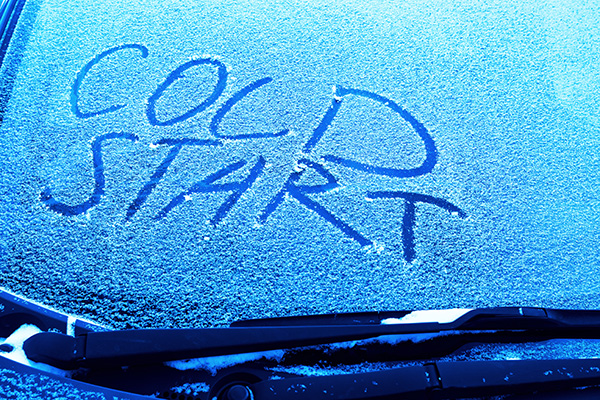
Winter mornings can be tough, not just for us but for our cars, too. If you’ve ever turned the key or pressed the start button only to hear a reluctant groan from your vehicle, you’re not alone. Cold weather puts a unique strain on your car’s systems, and understanding why this happens can help you prevent frustrating delays. We'll explain the reasons your car struggles to start when the temperature drops and what you can do about it.
Cold Weather and Your Car Battery
Your car’s battery takes the hardest hit in the winter. Batteries rely on chemical reactions to produce the energy needed to start your engine. When temperatures plummet, these reactions slow down, reducing the battery’s power output. At the same time, the cold oil in your engine thickens, making it harder for the motor to turn over. Combine the two, and you’ve got a recipe for a sluggish start.
If your battery is already nearing the end of its lifespan (typically around three to five years), cold weather can be the final straw. Regularly testing your battery’s health and replacing it before winter sets in can save you from being stranded in freezing conditions.
Thickened Engine Oil
When the temperature drops, motor oil thickens. This added viscosity makes it harder for the engine to turn over because the moving parts experience increased resistance. Using the right grade of oil for your climate is crucial. Many modern engines recommend multi-viscosity oils that perform well in a range of temperatures, but if you’re unsure, check your owner’s manual or consult a professional.
Switching to a winter-grade oil before the cold season can significantly improve starting performance. Don’t underestimate the impact of something as simple as choosing the correct oil.
Fuel System Challenges
Fuel doesn’t escape the effects of winter, either. Gasoline can thicken slightly in very cold temperatures, and if there’s moisture in your fuel system, it can freeze. Frozen moisture can block fuel lines, preventing gas from reaching the engine. This is particularly common in older vehicles without modern fuel injection systems.
To avoid fuel issues, keep your gas tank at least half full during the winter. This reduces the chance of condensation forming and freezing in the tank. Adding a fuel stabilizer or antifreeze product can also help keep your fuel flowing freely.
Issues with the Starter or Ignition
A weak starter motor or ignition system can also make it harder for your car to start in cold weather. Over time, wear and tear can take a toll on these components, and winter only magnifies the problem. If you hear clicking or grinding sounds when you try to start your car, it could indicate a starter issue. Addressing these problems early can prevent more expensive repairs down the line.
How to Prepare Your Car for Winter Starts
The best defense against winter starting troubles is preparation. Here are a few tips to keep your car ready:
- Test your battery: Have it tested at the start of winter to ensure it’s holding a charge, and replace it if necessary.
- Switch to winter-grade oil: Ensure your oil is suited for cold weather.
- Use a block heater: If you live in an area with extreme cold, a block heater can keep your engine warm and make starting much easier.
- Inspect the starter and ignition system: Don’t ignore signs of wear—have these components checked before the season starts.
By taking these proactive steps, you can avoid the frustration of a car that won’t start just when you need it most.
Don’t let winter take you by surprise—contact Oswald Service and Repair today for expert advice and quality repairs.